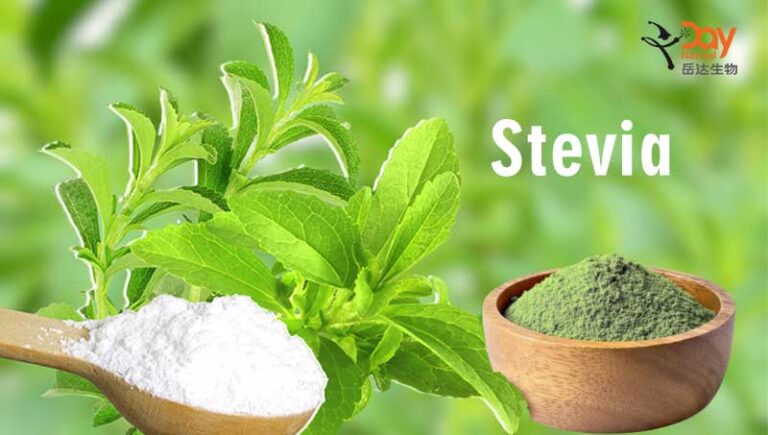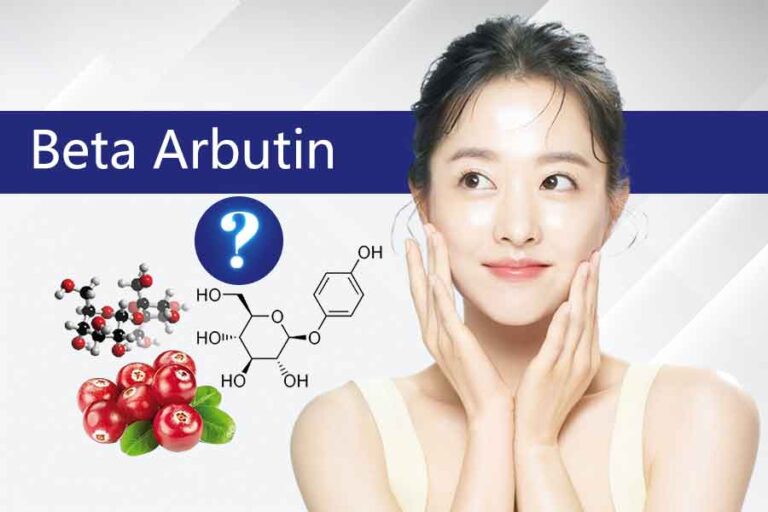Astaxanthin Benefits
Astaxanthin, also known as astaxanthin or astaxanthin, is a natural carotenoid pigment commonly found in certain Marine organisms such as algae, salmon, shrimp, and crabs. It acts as a powerful antioxidant with multiple potential benefits in terms of human health:
Antioxidant Astaxanthin Benefits
Astaxanthin can assist in resisting the damage inflicted by free radicals on human cells, which might contribute to decelerating the aging process and exert a positive influence on the prevention of chronic diseases such as cardiovascular disease. Its antioxidant effect is primarily manifested in the following aspects:
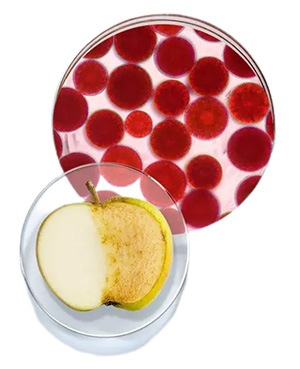
1. Neutralization of free radicals
Astaxanthin proficiently neutralizes the free radicals within the body. Free radicals are highly reactive molecules possessing unpaired electrons that can assail cell membranes, proteins, and DNA, giving rise to oxidative stress and cellular damage. Astaxanthin stabilizes free radicals by furnishing electrons, thereby minimizing their detrimental impact on cells.
2. Protection of cell membranes
Astaxanthin is fat-soluble and can be incorporated into the lipid bilayer of cell membranes. This characteristic enables it to play an antioxidant role within the cell membrane, averting lipid peroxidation and safeguarding the integrity and functionality of the cell membrane.
3. Enhancement of the effects of other antioxidants
Not only does astaxanthin possess a robust antioxidant capacity independently, but it also collaborates synergistically with other antioxidants (such as vitamin C and vitamin E) to amplify the overall antioxidant effect. This synergistic action can protect cells from oxidative stress more comprehensively.
4. Anti-inflammatory effect
Oxidative stress is frequently accompanied by an inflammatory response. Astaxanthin mitigates inflammation by suppressing the production of inflammatory mediators (such as prostaglandins, interleukins, etc.), and further reduces the damage of oxidative stress to tissues.
5. Protection of mitochondria
Mitochondria are the energy factories of cells and the principal sites of free radical generation. Astaxanthin can enter the mitochondria, shield them from oxidative impairment, and sustain normal energy metabolism and cellular function.
6. Prevention of chronic diseases
Due to its potent antioxidant potency, astaxanthin is believed to be conducive to preventing a variety of chronic diseases associated with oxidative stress, encompassing cardiovascular disease, diabetes, neurodegenerative diseases such as Alzheimer’s disease, and certain types of cancer.
7. Protection of skin and eyes
The antioxidant effect of astaxanthin is also exhibited in the protection of the skin and eyes. It can diminish skin damage induced by ultraviolet light, retard the skin aging process, and safeguard the retina from oxidative stress damage, aiding in the prevention of eye disorders such as macular degeneration.
Although astaxanthin demonstrates numerous potential health benefits, it is crucial to note that the majority of research is still in the laboratory and animal testing phases, and more clinical trials are requisite to confirm the specific effects in humans. When utilizing astaxanthin supplements or related products, it is advisable to consult a physician or nutrition expert to ensure safety and suitability.
Astaxanthin Anti Inflammatory
Studies have demonstrated that astaxanthin possesses certain anti-inflammatory attributes, which can assist in alleviating the symptoms of inflammatory disorders such as arthritis. The following are the primary mechanisms and potential advantages of astaxanthin’s anti-inflammatory effects:
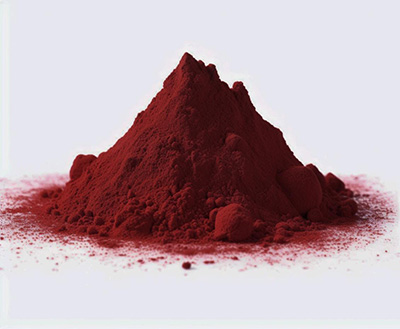
1. Suppress the production of inflammatory mediators
Astaxanthin inhibits the generation of multiple inflammatory mediators, including prostaglandins, interleukins (e.g., IL-1β, IL-6), and tumor necrosis factor-α (TNF-α). These inflammatory mediators play a crucial role in the inflammatory response, and their reduction can mitigate inflammatory symptoms.
2. Regulate the signaling pathways
Astaxanthin exerts an anti-inflammatory function by modulating some significant signaling pathways. For instance, it can restrain the activation of nuclear factor-κB (NF-κB). NF-κB is a transcription factor that plays a vital role in the inflammatory response, and its activation leads to an enhanced expression of inflammatory genes.
Astaxanthin also influences the mitogen-activated protein kinase (MAPK) signaling pathway, further reducing inflammation.
3. Inhibit oxidative stress
Owing to astaxanthin’s potent antioxidant capacity, it can neutralize free radicals and alleviate oxidative stress. Oxidative stress is one of the triggers of numerous inflammatory responses, thus reducing oxidative stress can contribute to the alleviation of inflammation.
4. Protect cell membranes
Astaxanthin is incorporated into the lipid bilayer of the cell membrane and safeguards the cell membrane from damage caused by lipid peroxidation. This not only reduces oxidative stress but also diminishes the inflammatory response initiated by damage to cell membranes.
Astaxanthin Skin Benefits
Astaxanthin is a powerful natural antioxidant with multiple potential benefits for skin health. Here are the main beneficial effects of astaxanthin on the skin:
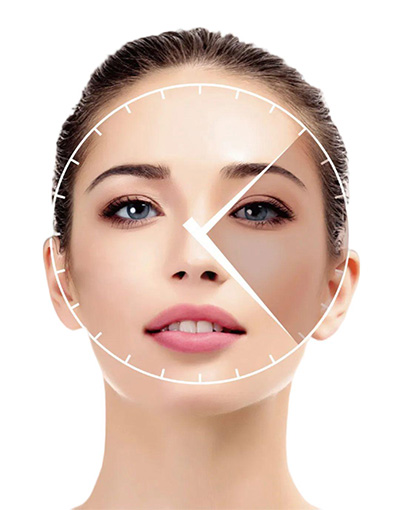
1. Antioxidant protection
– Neutralize free radicals: Astaxanthin can effectively neutralize free radicals in the body and reduce oxidative stress. Free radicals are one of the main causes of skin aging, wrinkle formation and hyperpigmentation.
– Protection of cell membranes: Astaxanthin can be embedded in the lipid bilayer of cell membranes, preventing lipid peroxidation, thereby protecting the integrity and function of cell membranes.
2. Anti-inflammatory effect
– Reduce inflammation: Astaxanthin can inhibit the production of inflammatory mediators (such as prostaglandins, interleukins, etc.) and reduce skin inflammation. This is very beneficial for the treatment of acne, eczema, psoriasis and other skin inflammatory diseases.
– Relieves redness and itching: By reducing inflammation, astaxanthin can relieve skin redness, itching, and other symptoms of discomfort.
3. Promotes skin repair
– Accelerate wound healing: Astaxanthin can promote the regeneration and repair of skin cells, speeding up the wound healing process. This is very useful for treating wounds, burns and other skin injuries.
– Enhanced skin barrier function: Astaxanthin helps to strengthen the skin barrier, reduce water loss, maintain the skin’s water-oil balance, and make the skin healthier and more resilient.
4. Anti-aging effect
– Reduces wrinkles: Astaxanthin helps reduce the appearance of fine lines and wrinkles by reducing free radical damage and boosting collagen production, making skin look younger.
– Improves skin tone: Astaxanthin can reduce pigmentation, lighten skin tone, and make skin more even and bright.
5. Moisturize and nourish
– Moisture retention: Astaxanthin helps skin retain moisture, keeping skin hydrated and reducing dryness and peeling.
– Improves skin elasticity: By enhancing skin elasticity and firmness, astaxanthin can make skin smoother and softer.
6. Uv protection
– Reduces UV damage: Astaxanthin can reduce skin damage caused by UV rays, including sunburn, pigmentation and light aging. While it’s not a complete replacement for sunscreen, it can serve as an additional protective measure.
7. Improve sensitive skin
– Soothing sensitive skin: For sensitive skin, the anti-inflammatory and antioxidant effects of astaxanthin can reduce irritation and redness, making the skin more comfortable and stable.
Use suggestion
– Choice of skin care products: You can choose skin care products containing astaxanthin ingredients, such as creams, serums, masks, etc.
– Supplements: Oral astaxanthin supplements can also be considered to improve skin health from the inside out.
– Consult a professional: Before using any new skin care products or supplements, it is recommended to consult a dermatologist or nutrition expert, especially if you have a history of specific skin problems or allergies.
In conclusion, astaxanthin provides multifaceted protection and improvement for the skin through its powerful antioxidant and anti-inflammatory effects and is a skin care ingredient worth considering.
Astaxanthin For Immune System
Astaxanthin is a powerful natural antioxidant that not only performs well as an antioxidant and anti-inflammatory, but also has multiple potential benefits for the immune system. The following are specific beneficial effects of astaxanthin on the immune system:
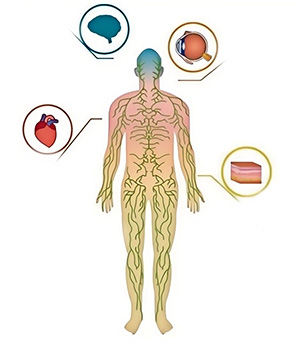
1. Enhance immune cell function
– Activate natural killer cells (NK cells) : Astaxanthin enhances the activity of NK cells, which are an important first line of defense in the immune system and are able to recognize and kill infected or abnormal cells.
– Promotes T and B cell function: Astaxanthin helps increase the activity of T and B cells, which play a key role in adaptive immune responses. T cells are responsible for cellular immunity, while B cells produce antibodies and participate in humoral immunity.
2. Regulate immune response
– Balance the immune system: Astaxanthin can help regulate the balance of the immune system and prevent autoimmune diseases caused by an overactive immune response, while also boosting defenses against pathogens.
– Reduces chronic inflammation: Through its anti-inflammatory properties, astaxanthin can reduce chronic inflammation, thereby reducing the long-term burden on the immune system and protecting the body from chronic diseases.
3. Improve antiviral capability
– Enhanced antiviral immunity: Studies have shown that astaxanthin can increase the body’s resistance to certain viruses (such as influenza). It enhances the body’s ability to clear viruses by enhancing the function of immune cells.
– Reduces symptoms after viral infection: Astaxanthin may help reduce symptoms after viral infection, such as fever, fatigue, and muscle pain.
4. Improve immune aging
– Delay immune aging: With age, the immune system will gradually decline, leading to a decline in immunity. Astaxanthin, through its antioxidant effect, can delay the aging process of immune cells and maintain the vitality of the immune system.
– Maintaining immune memory: Astaxanthin helps maintain immune memory, allowing the body to respond more effectively to pathogens it encounters again.
5. Support gut health
– Maintenance of the intestinal barrier: Astaxanthin can enhance the function of the intestinal mucosal barrier to prevent harmful substances from entering the bloodstream, thereby reducing systemic inflammatory responses.
– Promote probiotic growth: Some studies have shown that astaxanthin can promote the growth of beneficial bacteria in the gut, further supporting the health of the immune system.
6. Reduce the effects of stress on your immune system
– Anti-stress effect: Astaxanthin has a certain anti-stress effect, which can reduce the negative impact of psychological and physiological stress on the immune system. Stress is one of the important factors that lead to decreased immune function.
Use suggestion
– Supplements: The function of the immune system can be enhanced by oral astaxanthin supplements. Choose a high quality product and follow the recommended dosage.
– Food sources: astaxanthin rich foods include salmon, shrimp, crabs and certain algae. Moderate intake of these foods can also help boost immunity.
– Consult a professional: Before using astaxanthin supplements, especially if you have a specific health condition or are taking other medications, it is recommended to consult a doctor or nutrition expert.
In summary, astaxanthin supports the immune system through a variety of mechanisms, helping to enhance the body’s defenses and overall health. However, although many studies have been conducted to support its benefits, more clinical trials are still underway to further validate its effects.
Astaxanthin For Eyes
Astaxanthin is a powerful natural antioxidant with multiple potential benefits for eye health. Here are the main beneficial effects of astaxanthin on the eyes:
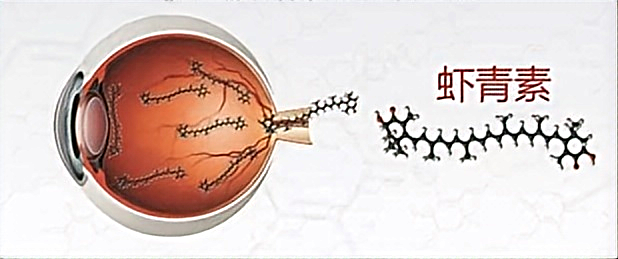
1. Antioxidant protection
– Neutralize free radicals: Astaxanthin can effectively neutralize free radicals in the body and reduce oxidative stress. Free radicals are one of the main causes of eye aging and degenerative diseases such as macular degeneration and cataracts.
– Protect the retina: Astaxanthin can be embedded in the lipid bilayer of the cell membrane, preventing lipid peroxidation, thereby protecting the retinal cells from oxidative damage.
2. Anti-inflammatory effect
– Reduce eye inflammation: Astaxanthin can inhibit the production of inflammatory mediators (such as prostaglandins, interleukins, etc.) and reduce eye inflammation. This is very beneficial for the treatment of dry eye, conjunctivitis and other inflammatory eye diseases.
– Relief of eye discomfort: By reducing inflammation, astaxanthin can relieve unpleasant symptoms such as redness, itching and dryness of the eyes.
3. Improve vision
– Enhanced visual function: Studies have shown that astaxanthin can improve visual acuity and contrast sensitivity, especially in low light conditions. This helps improve night vision and overall visual quality.
– Protect macular area: Astaxanthin can protect cells in the macular area and prevent macular degeneration. Macular degeneration is a common age-related eye disease that causes loss of central vision.
4. Prevent and slow down eye diseases
– Prevention of cataracts: Astaxanthin, through its antioxidant effect, can reduce oxidative damage to the lens, thereby preventing or delaying the development of cataracts.
– Slows macular degeneration: Astaxanthin can help slow the progression of age-related macular degeneration and protect light-sensitive cells in the retina.
– Prevention of dry eye: Astaxanthin can increase tear secretion and improve tear film stability, thereby preventing and relieving symptoms of dry eye.
5. Improve blood circulation in the eyes
– Improved microcirculation: Astaxanthin can promote blood circulation to the eyes, increase blood supply, and provide more oxygen and nutrients to the eye tissues, thereby supporting the health of the eyes.
6. Protect your eyes from UV rays
– Reduces UV damage: Astaxanthin can reduce oxidative stress caused by UV light and protect the eyes from UV damage. While it is not a complete replacement for sun protection, it can serve as an additional means of protection.
Use suggestion
– Supplements: Astaxanthin can be taken orally as a supplement to get its benefits for the eyes. Choose a high quality product and follow the recommended dosage.
– Food sources: astaxanthin rich foods include salmon, shrimp, crabs and certain algae. Consuming these foods in moderation can also help improve eye health.
– Consult a professional: Before using astaxanthin supplements, especially if you have specific eye problems or are taking other medications, it is recommended to consult an eye doctor or a nutrition expert.
In conclusion, astaxanthin provides multifaceted protection and support for eye health through its powerful antioxidant and anti-inflammatory effects. Although many studies have supported its benefits, more clinical trials are underway to further validate its effects.
In addition, we gathered the rest of the discussion about the benefits of astaxanthin, detailed below:
Astaxanthin For Cancer
Astaxanthin, as a powerful natural antioxidant, has received a lot of attention in scientific research in recent years, especially in terms of its potential anti-cancer effects. However, the current research on astaxanthin treatment of cancer is still in the preliminary stage, mainly focused on laboratory studies and animal experiments, and there is not enough clinical evidence to support its use as a primary means of cancer treatment. Here are some of the known findings:
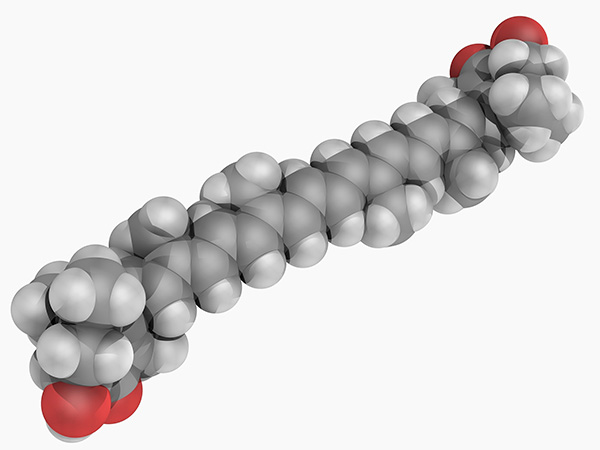
1. Antioxidant and anti-inflammatory effects
Astaxanthin is able to neutralize free radicals and reduce oxidative stress, which may help prevent or slow the development of certain types of cancer. In addition, it has anti-inflammatory properties that can reduce the inflammatory response, and chronic inflammation is one of the risk factors for the development of many cancers.
2. Inhibit cancer cell growth
Some studies have shown that astaxanthin may inhibit the growth and spread of cancer cells through a variety of mechanisms, such as inducing cancer cell apoptosis (programmed death), preventing cell cycle progression, and inhibiting angiogenesis.
3. Enhance the effect of chemotherapy
Studies have shown that astaxanthin may work synergistically with some chemotherapy drugs to improve the effect of chemotherapy while reducing side effects. This may be due to astaxanthin’s ability to protect normal cells from damage caused by chemotherapy drugs.
4. Immune regulation
Astaxanthin may help the body fight cancer by boosting the function of the immune system. It can activate natural killer cells (NK cells) and other immune cells, improving the body’s ability to recognize and eliminate cancer cells.
Astaxanthin For Hair
Astaxanthin, a powerful natural antioxidant, has also been studied for hair health. Here are some things to know about astaxanthin’s potential benefits in hair care:

1. Antioxidant protection
Astaxanthin neutralizes free radicals and reduces oxidative stress, thereby protecting the scalp and hair follicles from damage caused by environmental factors such as UV light and pollutants.
Antioxidants help slow down the aging process and keep your hair healthy and vibrant.
2. Promote hair growth
Some studies have suggested that astaxanthin may promote hair growth by improving blood circulation to the scalp. Good blood circulation provides more nutrients and oxygen to hair follicles, which supports healthy hair growth.
Astaxanthin may also reduce scalp inflammation by inhibiting certain inflammatory factors, which helps create a more conducive environment for hair growth.
3. Enhance hair strength
Astaxanthin can help strengthen the structure of your hair, making it tougher and more resilient. This can reduce hair breaks and split ends, making hair look healthier.
By protecting your hair from external damage, astaxanthin can also help maintain the shine and softness of your hair.
4. Anti-inflammatory effect
Astaxanthin has certain anti-inflammatory properties and can help reduce scalp inflammation, such as seborrheic dermatitis, dandruff and other problems. This not only helps to improve scalp health, but also creates better conditions for hair growth.
5. Moisturize and nourish
Astaxanthin helps to lock in moisture in the scalp and hair, maintaining its water-oil balance. This is especially beneficial for dry, damaged hair, making it more moisturized and smooth.
While these potential benefits sound appealing, it’s important to note that research on astaxanthin for hair care is relatively limited, and most studies are still preliminary. Therefore, when using hair care products containing astaxanthin, it is recommended to choose a reputable brand and pay attention to observe whether there are any adverse reactions. In addition, if you have specific hair problems or skin sensitivity conditions, it is best to consult a professional dermatologist or hairdresser first.


